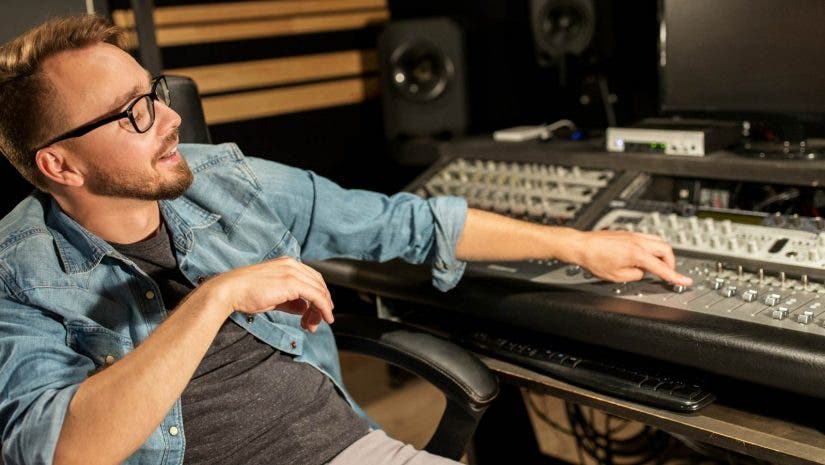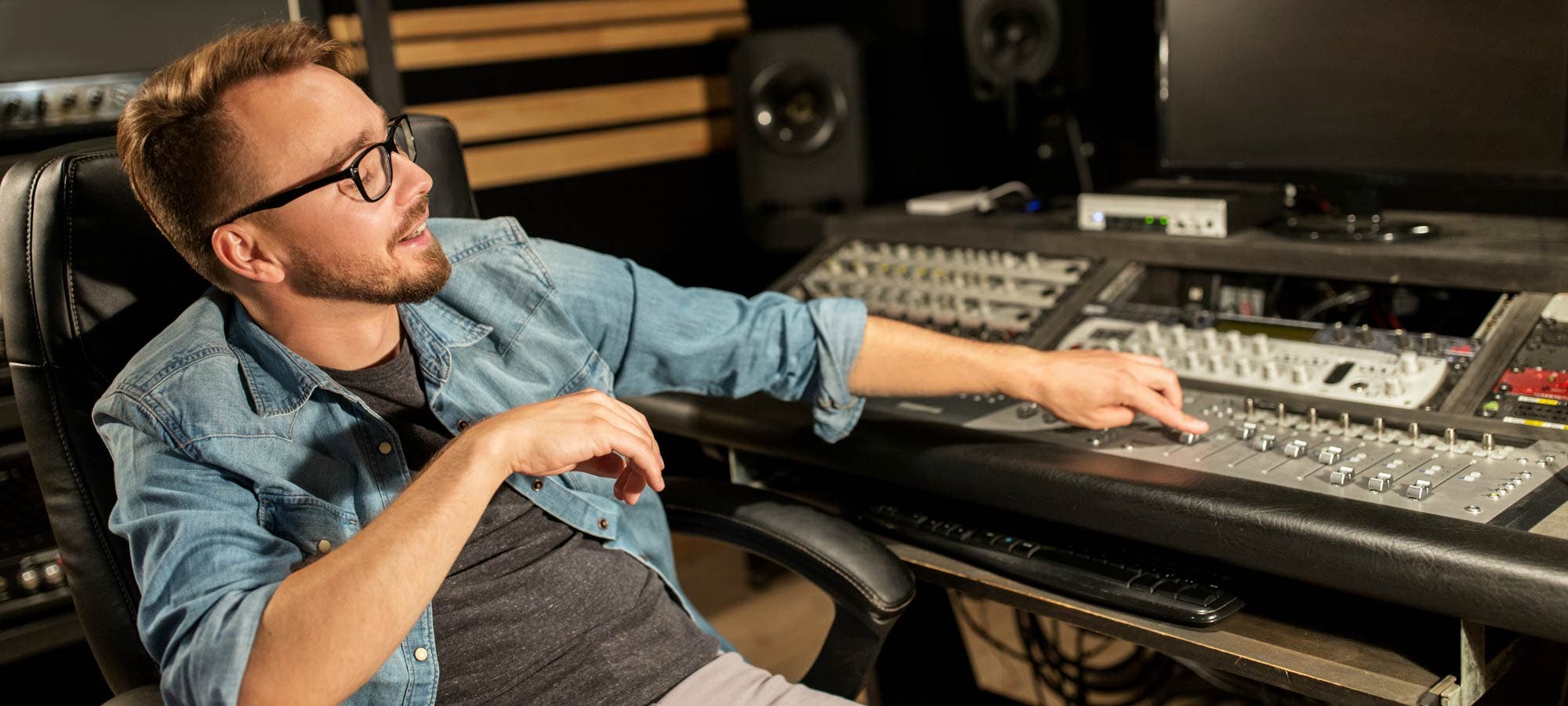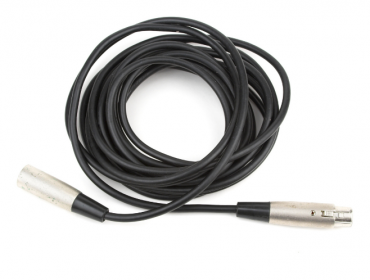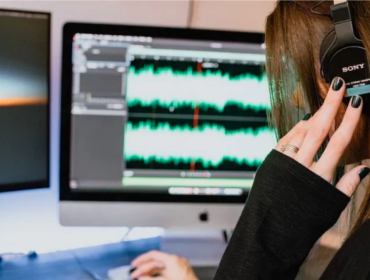Thinking of getting into music production as a career? Before you start sending out your resumes to random production companies, it helps to have a better understanding of the job positions that they may be offering.
In a big industry like music, there’s obviously a wide range of responsibilities that have to be distributed among specialists, starting from the recording process and live productions to any necessary post-production. And depending on your level of education and experience, you may have to start at the bottom and work your way up to bag more important roles in music production.
So if you’re interested in a career as a music producer, sound engineer, or even an instrument technician, for your own home recording studio or bigger studios in Hollywood, read on for more information.
Most Common Examples of Music Production Careers:
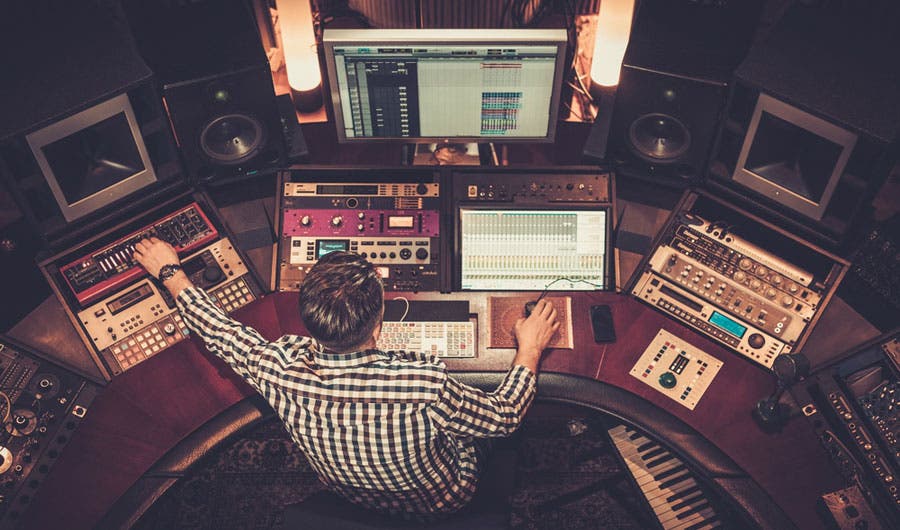
If you’re interested in starting a career in music production and you believe that you already have both the credentials and determination to work in the music industry, here are a couple of important jobs that you may be able to get into.
Record Producer
We’ve all heard of the title record producer. Also known as the music producer or track producer, this important person is in charge of overseeing and managing the entire production and recording process, whether it’s for one song or an entire album.
Their job involves gathering musical ideas for the project, helping with the selection of cover songs or original material to record. They specialize in hiring musicians, and closely working with the artists to improve their songs, lyrics, and arrangements in and out of the studio.
Audio Technician
An important person who ensures great sound quality is the audio technician, also known as the audio/live sound/recording/vocal/mastering engineer. He or she works with producers and artists to determine and create the desired sound.
The job involves working on the technical aspects of recording, which includes setting up audio recording devices, editing and mixing different sounds from multiple audio sources using mixing boards, testing and making basic repairs on recording equipment, creating copies of the recordings in other formats, and keeping backup copies.
Audio technicians are also in charge of setting up audio devices, doing sound checks, and sound mixing of audio (including speech and music) outside the studio, such as for music concerts, theaters, sports arenas, lecture halls, churches, and corporate events.
Recording Studio Manager
The studio manager basically oversees and manages the day-to-day operations of business in a recording studio. He or she may be the owner or a co-owner of the company. They may be an employee hired specifically for the job.
Although studio managers don’t seem to necessarily have advanced knowledge in the technical and artistic aspects of music, they do have to hire qualified engineers to run the equipment in the studio, and have good rapport with producers, band managers, and artists that they will be booking. They also negotiate prices and market the studio to prospective customers interested in renting out the studio.
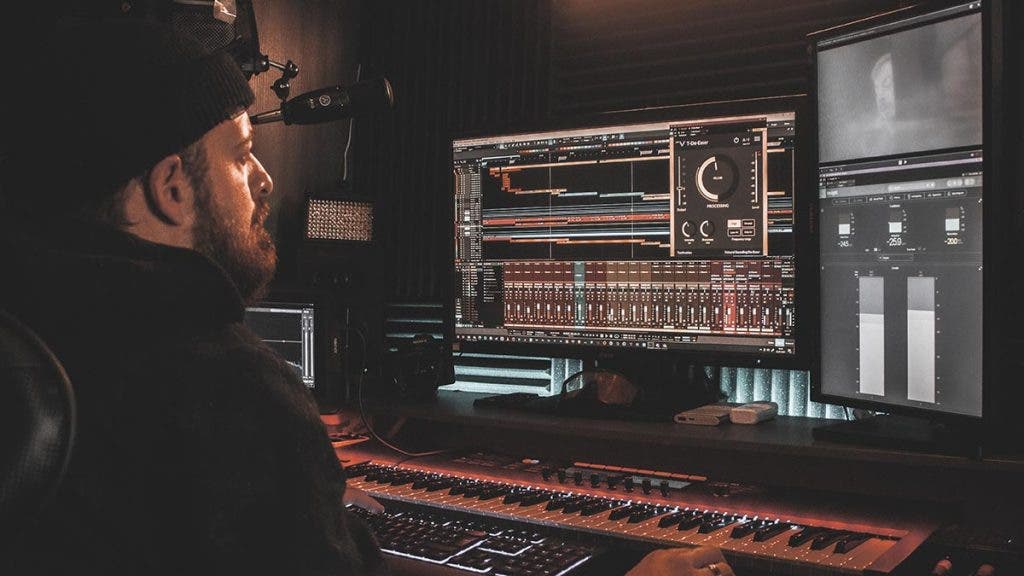
Sound Designer
A sound designer’s role is to find and create recorded or live audio effects to use for a wide range of productions and multimedia performances. They carefully select and produce everything from spot effects (such as explosions) to atmosphere effects (such as traffic sounds) not only for TV, commercials, and theater plays, but also for animations and video games. They’re also sound/special effects editors.
Sound designers work early on with the director, for script reading and the creation of the cue list based on their desired sound design for a particular production. They also work with other sound editors before filming begins or after the final picture edit has been approved.
Instrument Tech
Also known as an instrument specialist, the job of an instrument tech requires extensive knowledge in using, maintaining, and setting up musical instruments and other equipment for studio recording or concert tours and stage shows. They normally have specific specializations. They can also be guitar techs, bass techs, keyboard techs, percussion techs, and so on.
If you’re considering becoming an instrument tech, you’ll need more than the ability to play the instruments. You have to have strong practical skills, good communication skills to be able to get along with others in the industry. You also need a special understanding of electronic systems and software, which you’ll be working with a lot during music production.
Sound Mixer
Not to be confused with the sound editor, the sound mixer basically manages the volume and sound quality of the audio being played or recorded, especially when more than one microphone is being used.
The job obviously involves technical knowledge in sound mixing devices, each of which can make different sound adjustments in real-time. A sound mixer is particularly helpful for live music productions, when there’s no chance of making sound adjustments before the audio is fed to a live audience.
Radio Broadcast Engineer
A radio broadcast engineer is responsible for setting up, operating, maintaining, and repairing broken sound equipment in radio stations. It’s overtime work that will require you to be on-call, especially since many radio stations have multiple shifts covering each 24-hour day of the week.
Skills required in being a radio broadcast engineer include an expert knowledge in broadcasting devices, including computer systems found in radio booths, as well as in editing audio recordings.
Digital Audio Editor
While there are digital audio editing programs, the music production industry often needs a dedicated employee who can operate it. Therefore, one of the top careers in music production is that of a digital audio editor. This career mainly involves making digital audio edits such as cutting, copying, splicing, mixing, cleaning, and adding effects to the recording session output.
You’ll also find such responsibilities in an audio technician or sound engineer’s extended job description. However, some music production companies still hire dedicated digital audio editors who can focus on the post-production. Meanwhile, their sound engineer focuses on doing their job during the recording process.
Other jobs include composers, songwriters, voice talents, instrumentalists, music managers, and many others. Whatever it is, the secret to being successful in music production is to first appreciate the makings of music behind the scenes and then find what you’re best at. With the list above, we hope you finally have an idea about which one you’d like to be.
Careers in Music Production: Frequently Asked Questions
Is music production a good career?
Careers in music production can be incredibly fulfilling. If you’re a creative type and balk at the idea of an 9-to-5, the world of audio and music production offers many opportunities to do things on your terms.
You’ll undoubtedly meet lots of talented people to inspire you. Plus, you’ll have the satisfaction of potentially turning a hobby into a career. In any case, you’ll know right away if careers in music production are for you. The lifestyle can be demanding at times. Expect lots of late nights and early mornings, but the pros tend to outweigh the cons.
Is it hard to get a job in music production?
Careers in music production are competitive. The talent pool is typically larger than the job pool. However, you shouldn’t be deterred if you have the drive and the skill to succeed in music production. It is absolutely possible.
Just don’t be discouraged if you don’t get your dream job right away. Most professionals in music production have a unique skill-set which they parlay into other opportunities to earn income. At the very least, you’ll be gaining valuable experience with any sort of audio work you do.
Overall, the best advice is to have an open mind and explore every audio-related opportunity you can. It may not be the ideal position right away, but there are worse ways to try to make a living!
Can you make a living with a music degree?
Of course! If your degree is in music performance, you could find work as a session player or an instructor, for example. If your degree focuses on the technical aspects of music production, then you can make a living in one of the various ways mentioned previously.
One thing to keep in mind is that there’s a good chance you’ll be freelancing — at least at first. In that case, you’ll have to juggle multiple gigs for a livable wage. It can be tricky, but the freedom that affords is a huge draw for many people.
On the other hand, one example of full-time audio work is recording/mixing commercial spots and other marketing content for large companies. These jobs are a great way to make a living, though you’ll usually need quite a bit of experience.
